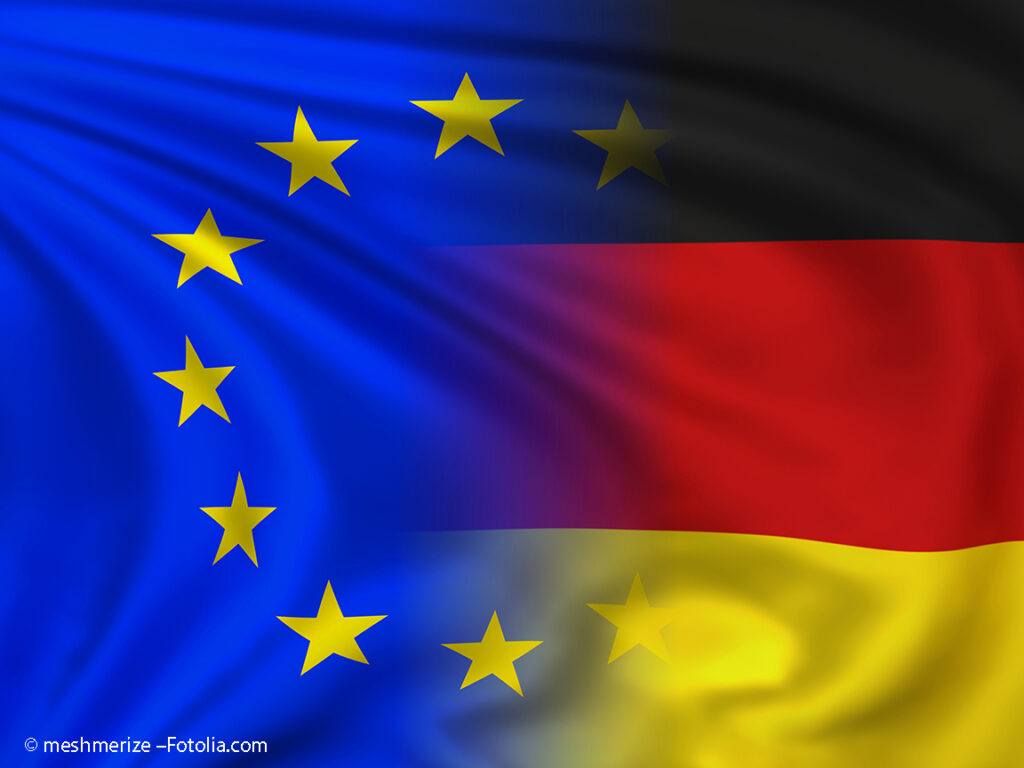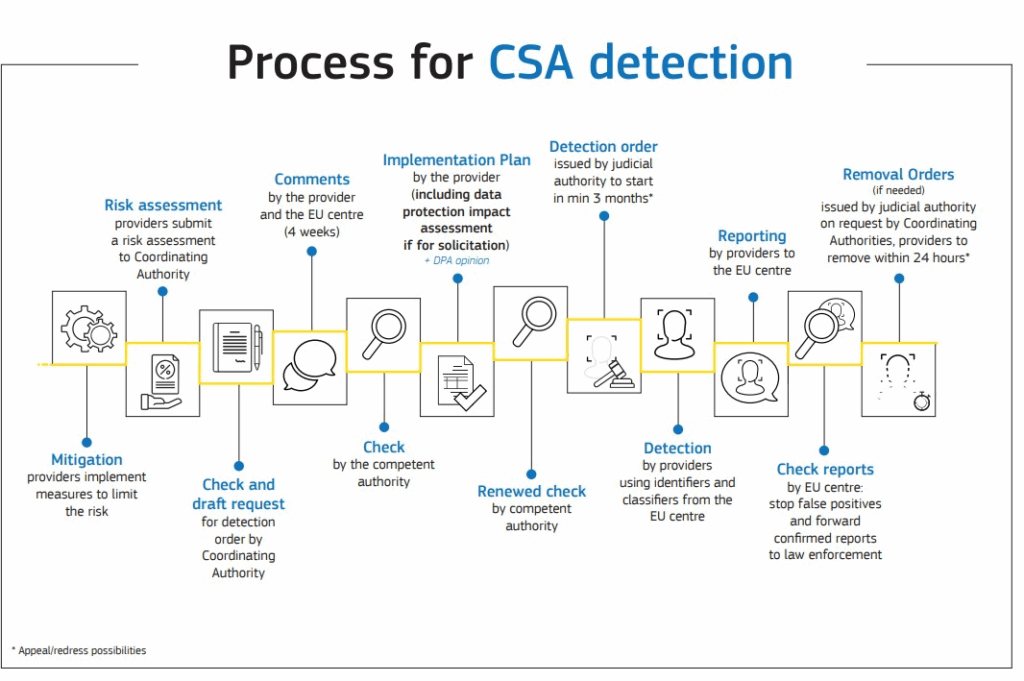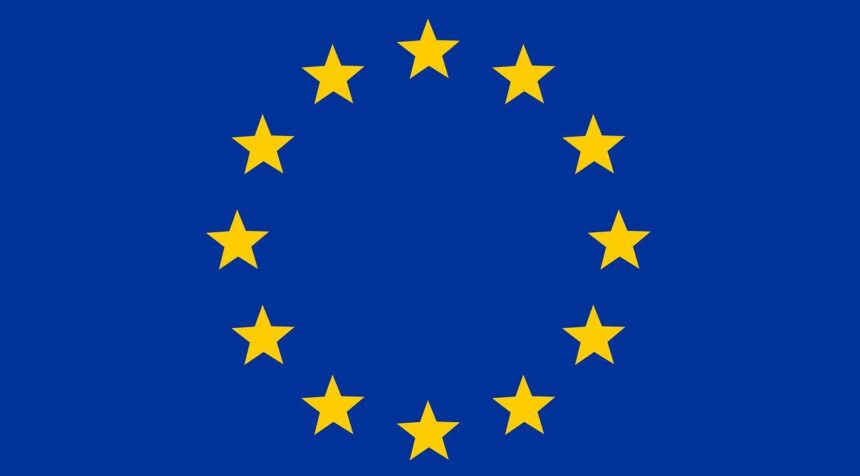The European Union’s controversial plan to combat child sexual abuse material (CSAM) online derailed — and Germany is the reason why. During a high-stakes meeting between EU member states this week, Germany’s opposition to the proposed legislation was evident. The opposition effectively removed it from the EU Justice Ministers’ agenda for next week.
Germany’s line halts one of the EU’s most divisive digital policies. It requires encrypted messaging platforms (i.e., WhatsApp, Signal, Telegram) scan private messages for child abuse content. The measure, known informally as “chat control,” faced fervent backlash for its perceived invasion of privacy and threat to end-to-end encryption.
While the proposal intended to protect children, its sweeping surveillance provisions turned many EU states against it. This split the bloc between privacy defenders and security advocates.
What’s Happening & Why This Matters
The EU’s Controversial “Chat Control” Plan Hits a Wall

The European Commission first introduced the CSAM regulation in 2022, arguing that voluntary detection systems by tech companies weren’t enough to curb the spread of illegal material. In 2023 alone, there were 1.3 million reports of suspected child sexual abuse in the EU. This represented over 3.4 million images and videos, according to Commission data.
Brussels claimed the patchwork of national laws left tech firms facing inconsistent compliance standards. The CSAM proposal sought to unify those efforts under an EU-wide system. It would mandate companies to scan messages, photos, and URLs for potential child abuse material.
However, that core provision — scanning end-to-end encrypted messages — triggered fierce debate. Critics warned it would create a backdoor into private communication, undermining both civil liberties and cybersecurity.
Germany Takes a Hard Line
Germany’s Minister of Justice and Consumer Protection, Stefanie Hubig, was explicit in rejecting the proposal.
“Chat control must be a taboo in a state governed by the rule of law,” Hubig said. “Private communication must never be under general suspicion. The state must not force messengers to scan messages en masse for suspicious content before sending them.”
Hubig’s stance expresses a fear shared by countries, including Austria, Finland, Poland, and the Netherlands. These countries also voiced deep reservations about privacy and state overreach.
Meanwhile, France, Denmark, Ireland, and Hungary remain in favour of stronger enforcement measures, arguing that child protection outweighs privacy concerns.
The Dutch government echoed Germany’s view in a letter to parliament. It stated that the current proposal “fails to protect fundamental rights — particularly privacy, correspondence, and digital security.”

Privacy Groups Call It Spyware
Digital rights organisations, including European Digital Rights (EDRi), have long condemned the EU’s CSAM plan. EDRi described the measures as “personalised spyware deployed to millions of people’s devices,”. They warned that the proposal could normalise mass surveillance in the name of safety.
Critics argue that forcing encrypted apps to implement scanning technology would break encryption by design. This could expose personal data to misuse by hackers, governments, or malicious actors.
Temporary Rules Still Apply
With the proposal now stalled, existing e-privacy directive rules remain in place. Under those rules, messaging providers can voluntarily use specific detection technologies to identify and remove illegal content. However, they are not compelled to do so.
EU lawmakers agreed last year to extend those temporary measures until April 3, 2026. This gives negotiators more time to seek a new compromise. Denmark, which currently chairs the EU Council, is expected to draft a revised version in the coming months to revive talks at a technical level.
However, even if an agreement is reached among EU member states, the regulation must undergo inter-institutional negotiations. This would involve the European Parliament and the European Commission before becoming law — a process that could stretch well beyond 2026.
Privacy vs. Protection
This latest stalemate exposes the EU’s ongoing struggle to balance digital privacy with child protection. The proposal’s opponents argue that mandatory scanning violates fundamental rights, while supporters insist that voluntary measures have failed to curb abuse.
The debate has become a defining test for Europe’s digital sovereignty. Does the bloc prioritise protecting vulnerable users, or defending private communication at all costs? For now, Germany’s “no” vote means privacy wins — at least temporarily.
TF Summary: What’s Next
The EU’s effort to police child abuse content online hit a dead end — for now. Germany leads a coalition of privacy-first nations that view chat scanning as invasive and unconstitutional. While child safety remains a shared priority, the method to achieve it appears politically radioactive.
MY FORECAST: Expect EU officials to revisit the proposal with narrower language and stronger data protection guarantees. Until then, the status quo remains: tech companies can detect CSAM content voluntarily, but not under mandate.
— Text-to-Speech (TTS) provided by gspeech


